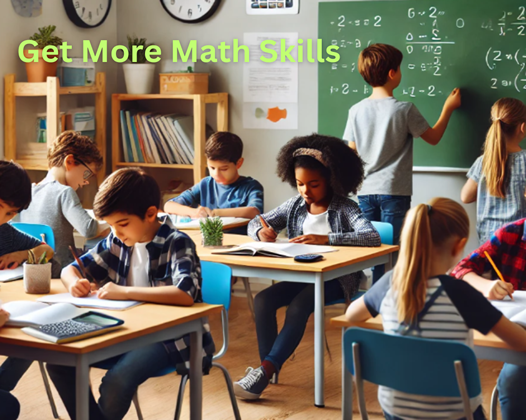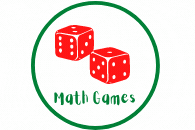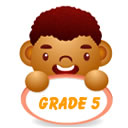How to Get More Math Skills and Excel in Mathematics
Are you someone who dreads math, or perhaps you find it boring or intimidating? You're not alone. Many people struggle with mathematics at some point in their lives. However, math is a vital skill that extends beyond school and is useful in everyday life. If you want to improve your math skills, there are various strategies you can use to make the process easier and even enjoyable. Let's explore how you can get more math into your life and become more proficient at it.
The Importance of Learning Math
Mathematics is not just a subject you have to learn in school—it's a universal language that helps us understand and interact with the world. From budgeting and shopping to cooking and travel, math skills are essential. Moreover, many career paths require a strong foundation in math, including engineering, computer science, economics, and even some arts and social sciences. Improving your math skills can open doors to new opportunities and help you make better decisions in your everyday life.
Common Challenges in Learning Math
While math is important, it can also be difficult for many people. Some common challenges include:
- Fear of failure: Many people develop anxiety around math because they fear getting the wrong answers.
- Lack of motivation: If you don't enjoy math, it's hard to stay motivated.
- Inadequate teaching methods: Traditional teaching approaches may not suit everyone, leading to a lack of understanding.
- Difficulty with problem-solving: Not knowing where to start or how to approach a math problem can be discouraging.
Setting Realistic Goals for Math Improvement
The first step to getting better at math is setting achievable goals. Start with smaller, manageable objectives like solving basic math problems or spending 20 minutes a day practicing. Once you achieve these small goals, you can gradually increase the difficulty level or time spent on math practice. Setting realistic goals keeps you from feeling overwhelmed and makes it easier to track your progress. Continue Below >>

Creating a Math-Friendly Environment
Your environment can have a significant impact on your learning. A cluttered or noisy space can make concentration difficult. Set up a dedicated study area free from distractions where you can focus on math. Having all the necessary tools, like a calculator, notebooks, and math textbooks, easily accessible can also make your study sessions more efficient.
Using Online Resources to Enhance Math Learning
In today's digital age, there are many online resources available to help you get more math skills.
Math Websites and Apps
Websites like Khan Academy, Mathway, and Wolfram Alpha offer tutorials, practice problems, and step-by-step solutions. Apps such as Photomath and Microsoft Math Solver can help you solve math problems on the go. These resources can provide extra support and different approaches to math concepts, making them easier to understand.
YouTube Channels for Math Tutorials
YouTube has become a great platform for learning, and there are countless channels dedicated to math education. Channels like kidsmathtv.com, "Numberphile," "3Blue1Brown," and "Khan Academy" offer visual explanations and break down complex topics in a fun and engaging way.
Practicing Regularly: The Key to Mastering Math
Like any other skill, mastering math requires consistent practice. Set aside regular times each week for math practice, focusing on different types of problems to keep things interesting. Consistent practice helps reinforce concepts and makes it easier to recall math skills when needed.
Math Study Techniques for Different Learning Styles
Everyone learns differently, and understanding your learning style can help you approach math in a way that suits you best.
Visual Learners
Visual learners benefit from seeing information presented in diagrams, charts, and videos. Use colorful notes and graphs to help understand math problems.
Auditory Learners
Auditory learners learn best through listening. Try listening to math podcasts, or have a friend explain concepts out loud. Even speaking through problems yourself can help reinforce the material.
Kinesthetic Learners
Kinesthetic learners benefit from a hands-on approach. Use physical objects, like blocks or measuring cups, to practice math concepts.
Working with a Math Tutor or Study Group
Sometimes, individual study is not enough, and working with a math tutor can provide personalized guidance. Tutors can explain concepts in different ways until you understand them. Alternatively, joining a study group can help you learn from your peers and provide a support network for shared struggles.
Making Math Fun with Games and Puzzles
Math doesn't have to be boring! Games like Sudoku, chess, and math-related apps make learning math enjoyable. There are also puzzles and board games designed to improve math skills without feeling like traditional learning.
Applying Math in Real-Life Situations
Math is everywhere, and applying it in real-life situations can make learning more meaningful. Try using math when cooking to adjust a recipe, budgeting for a trip, or measuring furniture for your home. This helps you see math's practical side and reinforces what you've learned.
Tracking Your Progress and Celebrating Small Wins
Keep a journal or use a digital tool to track your math progress. Celebrate small achievements, like improving your test scores or solving a difficult problem. Rewarding yourself for these wins can help keep you motivated.
Using Positive Reinforcement to Stay Motivated
Staying positive and using self-affirmations can boost your confidence. Remind yourself of your progress and why you are learning math. Surround yourself with supportive people who encourage your efforts.
Common Mistakes to Avoid When Learning Math
Avoiding these common pitfalls can improve your math learning experience:
- Skipping basic concepts: Make sure you understand foundational skills before moving to more advanced topics.
- Ignoring mistakes: Learn from your errors instead of brushing them off.
- Over-relying on calculators: Practice mental math to strengthen your skills.
Conclusion: How To Get More Math
Improving your math skills is not an overnight process, but with the right mindset, tools, and strategies, anyone can do it. Whether you're a student, a professional, or just someone who wants to be better at math, these tips can help you "get more math" into your life and enjoy the journey. Remember, math is not about being perfect; it's about making progress, one problem at a time.
FAQs
1. What is the best way to improve math skills quickly?
The best way is to practice regularly, use online resources, and focus on understanding the concepts rather than just memorizing formulas.
2. Can math apps help in learning math?
Yes, math apps can provide interactive practice problems, tutorials, and step-by-step solutions that can aid in learning and reinforcing math skills.
3. How much time should I spend practicing math each day?
Start with 20-30 minutes a day and gradually increase the time as you become more comfortable with math.
4. What if I can't afford a math tutor?
Consider joining a study group, using free online resources like Khan Academy, or finding a friend who can help you with math.
5. Are there any games that can help improve math skills?
Yes, games like Sudoku, chess, and math-related apps can make learning math more enjoyable and improve problem-solving skills.
![]() 8th Eight Grade Math Worksheets - Polynomials, Algebra, Geometry, Pythagorean Theory, & more
8th Eight Grade Math Worksheets - Polynomials, Algebra, Geometry, Pythagorean Theory, & more
![]() Coloring and Arts - Printable coloring worksheets for kids - Pre K to 6 th grade
Coloring and Arts - Printable coloring worksheets for kids - Pre K to 6 th grade
![]() Math Puzzles in PDF Printable Format - Secret trails, Across downs, Number Patterns & more
Math Puzzles in PDF Printable Format - Secret trails, Across downs, Number Patterns & more
![]() Math Board Games in PDF Printable Format - Zombie, Crocodile, Football, Pirate games & more
Math Board Games in PDF Printable Format - Zombie, Crocodile, Football, Pirate games & more
 This exercise will help kids practice Math in a fun way. Kids related to games very well. From preschool / kindergarten to sixth grade levels of math games. There are games for the following topics:
This exercise will help kids practice Math in a fun way. Kids related to games very well. From preschool / kindergarten to sixth grade levels of math games. There are games for the following topics:
The games include among other : memory games, Walk the plank, Fling the Teacher, En Garde Duel, Basketball Game, Penalty Shoot and more.








